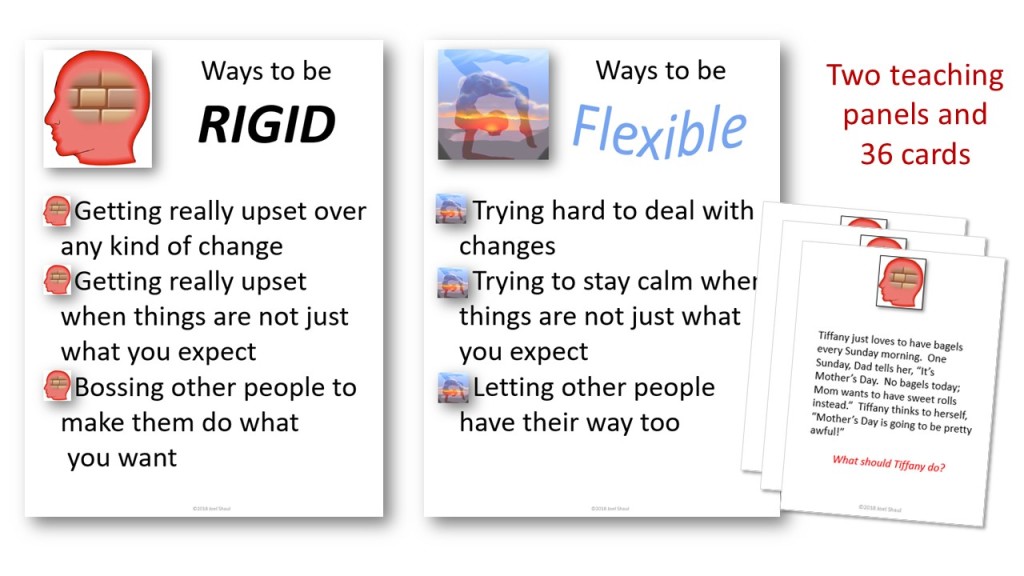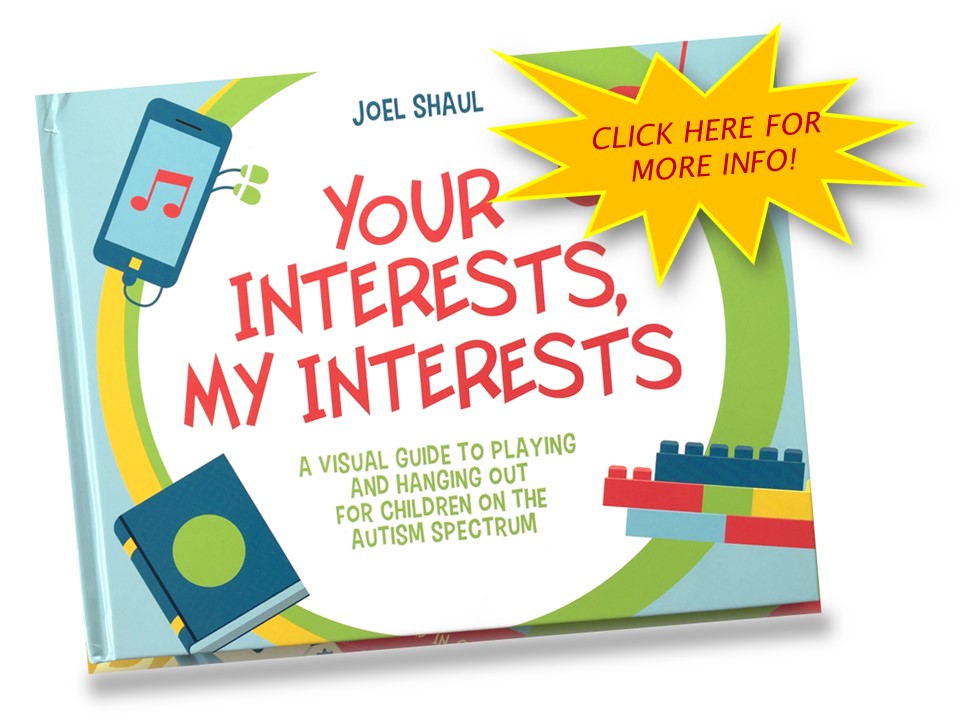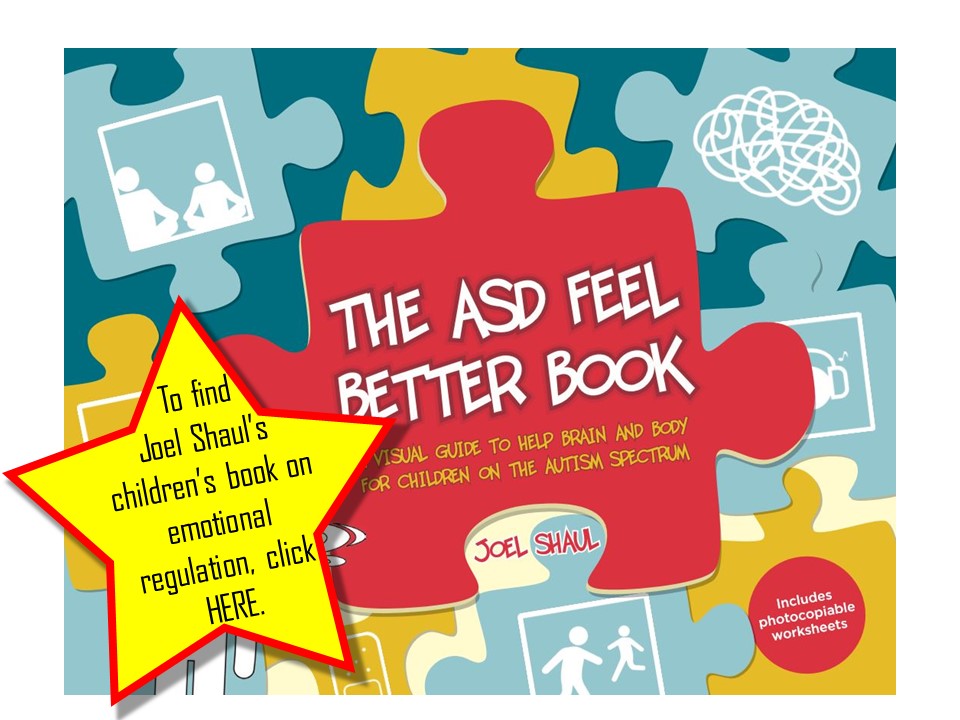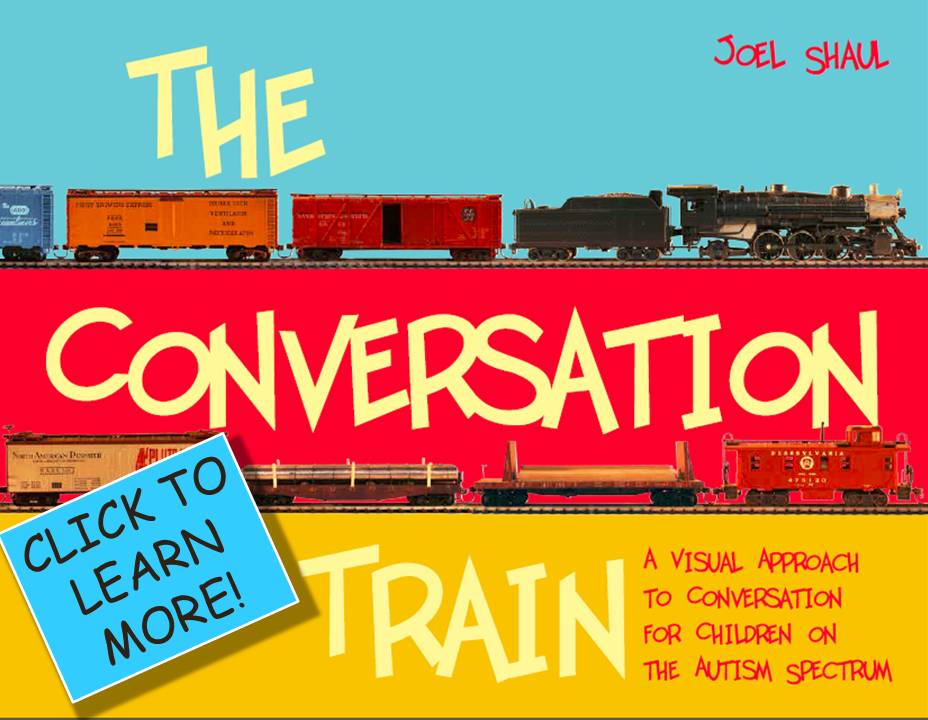Children with autism spectrum disorders often experience challenges relate to rigidity. They can find if difficult dealing with changes and problems trying things new ways. Children on the autism spectrum can find it hard to imagine the points of view of other people and they often don’t make accurate predictions about how others will react to stubborn and bossy behavior.
The free resource featured here is one of many I offer to help raise awareness regarding rigidity and flexibility in social situations.
To print out the 36 cards and the two panels, click here:
Flexibility Cards, Activity to explore rigidity
Also available in POLISH language version
*But in case you prefer to “show” this activity rather than print it and cut it out, click below instead:
Flexibility Cards PowerPoint Version
When you print out the cards, I suggest you use cardstock or else paper which you will then laminate.
The two panels can be used separately as a wall display or teaching aid, if you don’t intend to use the cards.
Suggestions on how to introduce the topic of Rigidity:
1. I suggest that you select your terminology carefully. Many kids with ASD learning the social skill of flexibility might not have the capacity to learn and use words such as “rigidity,” flexibility,” “cooperate,” “compromise,” etc. Far more children will be able to grasp the meaning of simpler words like “stubborn,” “bossy,” “get along with,” “let others have their way,” etc.
2. Try using language like this when starting on this topic: “Some things around us are hard. What are some objects in this room that are hard? Other things are soft. Name some soft objects in this room. Now let’s talk about how things that we cannot see can also be hard or soft. Like our thoughts. Here are some words for thoughts that are HARD: Bossy, stubborn, [rigid], unchanging. Here are some words for thoughts that are SOFT: Flexible, agree, willing to change, willing to try, [cooperate]. Sometimes it is okay or good to to be stubborn and bossy. Like if someone is trying to get you to do something really bad, it’s great to be really stubborn and say no. Sometimes it feels really good to do something the same way over and over to make you feel safe and calm. But very often, it is not good to be rigid. Being rigid can keep you from doing good, new things. Being rigid can annoy other people. Being rigid can keep you from having friends.”
3. I have a children’s YouTube video on Rigidity – This might be a good introduction to this topic.
How to use the cards:
The cards are designed to help kids with high functioning autism to learn more about the social skills of flexibility associated with accepting other people’s thoughts and ideas and dealing with unexpected and unwanted changes. You can shuffle the cards randomly or else “stack the deck” so that cards most fitting for the child(ren) present will be drawn. Remove from the deck any cards you don’t consider relevant.
My first suggestion is that you do lots of role plays when you are doing this social skills game activity. For example, you, the adult, can pretend to be the rigid person depicted in the card. You can do the role play with another adult or with the children who are present. My second suggestion is that you strongly reinforce children when they show awareness of their own rigid traits. You can try passing out tokens or keeping score in some way to acknowledge learning about flexibility and admitting to rigid habits.
Below the downloads, you will find some links to other downloadable social skills activities on the website that particularly focus autism social skills having to do with rigidity.
I hope you enjoy this social skills activity.
Joel Shaul, LCSW
There are dozens of other free social skills games, worksheets and card activities you can download for children on the autism spectrum. Don’t miss them!
Free social skills games & activities, communication / conversation skills for kids with ASD
Free social skills games & activities, social interaction skills for kids with ASD
Free social skills games & activities, emotional regulation skills for kids with ASD
Your comments on these resources are most welcome, and often helpful. Click HERE to send an email.





